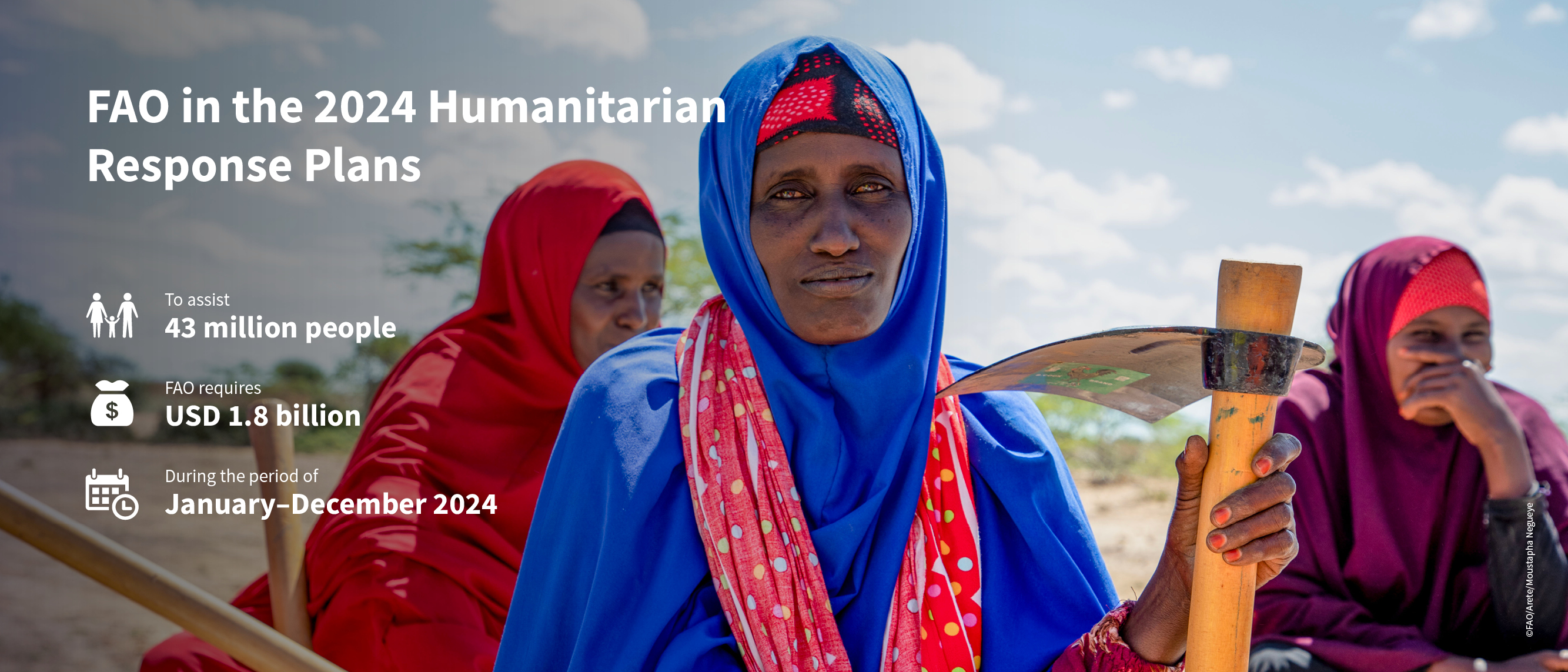
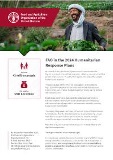
FAO in the 2024 Humanitarian Response Plans
12/2023
By the end of 2022, the Global Report on Food Crises recorded the highest-ever levels of acute food insecurity – affecting a quarter of a billion people in 53 countries – in spite of the highest ever levels of funding for humanitarian response.
Throughout 2023, needs remained unacceptably and stubbornly high: 258 million people in 53 countries were acutely food insecure. Concurrently, humanitarian budgets began tightening, leaving millions without assistance.
Food crises continue to dominate the global outlook for 2024. Extreme weather events driven by the climate crisis are interacting with new and intensifying conflicts and economic instability, pushing humanitarian needs higher.
The reality of high needs and likely further contraction of bilateral donor funding means that the 2024 humanitarian response planning process must further sharpen its focus on those most at risk and the most cost-effective ways to meet their immediate food security needs.
In 2024, within the Humanitarian Response Plans, FAO is seeking a total of USD 1.8 billion to assist 43 million people to produce their own food. At a time of funding cuts, this support is both life-saving and cost-effective – on average for every USD 50 a donor provides, rural families are producing USD 300 in food.
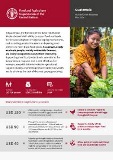
Guatemala: Humanitarian Response Plan 2024
04/2024
In Guatemala, the high cost of the basic food basket hinders households’ ability to access food and leads to increased adoption of negative coping mechanisms, such as selling productive assets or depleting seed reserves to meet basic food needs.
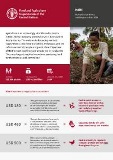
Haiti: Humanitarian Needs and Response Plan 2024
02/2024
Agriculture is an increasingly vital lifeline for people in Haiti. Rising insecurity and low harvests have pushed food prices up.

Mali: Humanitarian Needs and Response Plan 2024
03/2024
Conflict and recurrent climate shocks continue to increase humanitarian needs across Mali.

Mozambique: Humanitarian Needs and Response Plan 2024
03/2024
Mozambique is one of Africa’s most climate-vulnerable countries. In addition to climate shocks, the ongoing conflict in Cabo Delgado is the country’s main driver of food insecurity.
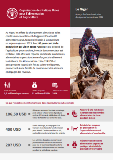
Niger: Humanitarian Needs Overview and Response Plan 2024
02/2024
In 2023, access to food emerged as the most pressing need for people in the Niger, where the impact of climate change and armed conflict continue to drive acute food insecurity.
